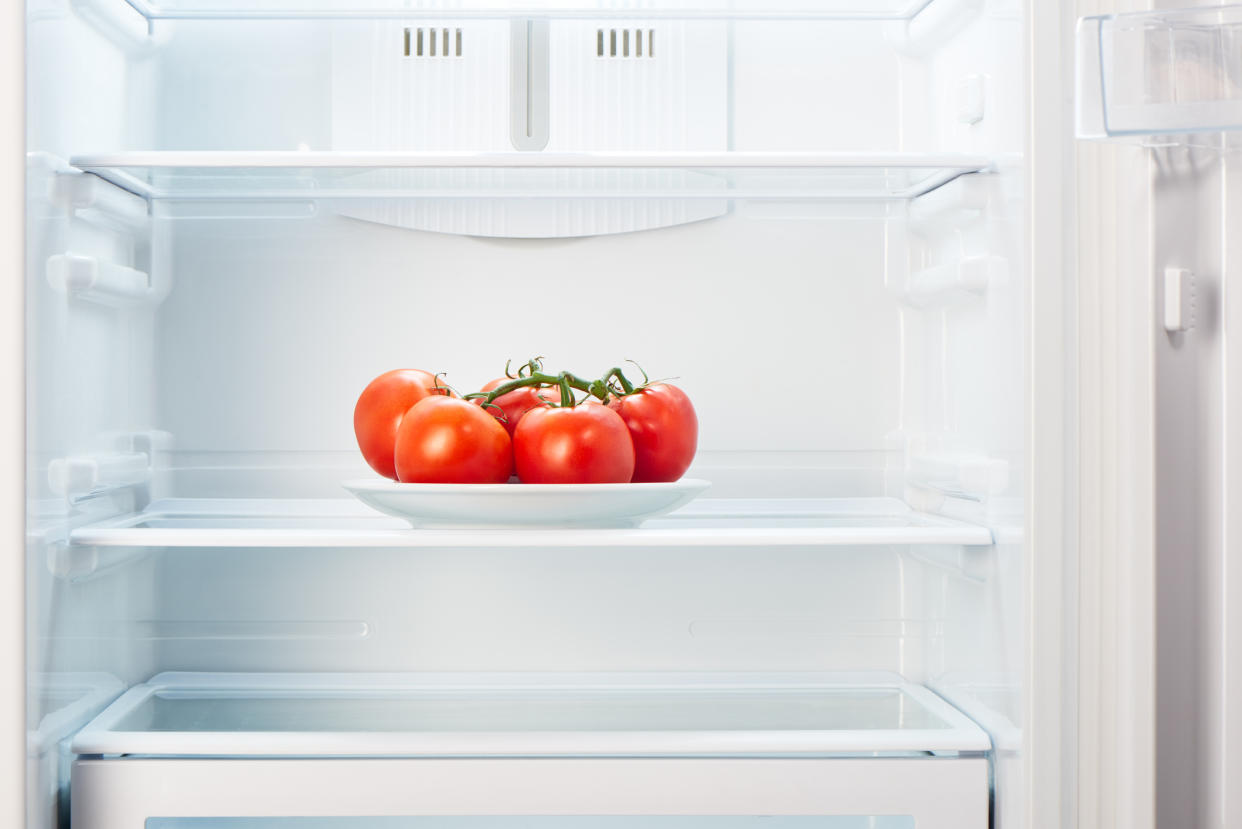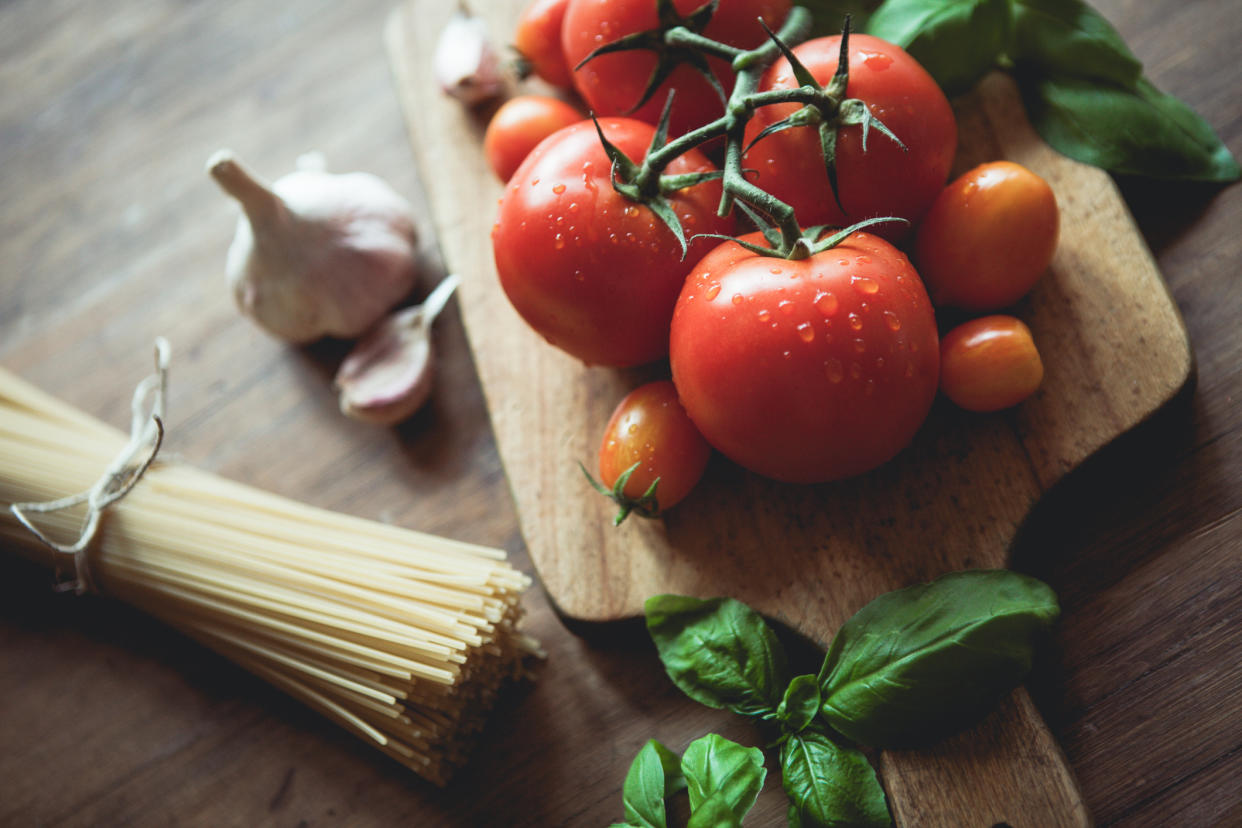Should tomatoes be kept in the fridge?

There has been much debate over the years about whether certain food stuffs should or shouldn’t be stored in the fridge.
Remember the furore over whether ketchup should be kept in the cupboard or fridge? Well, a similar heated discussion has erupted about the sauce’s little cousin, the tomato.
To prolong the shelf-life of the humble red fruit (yes tomatoes are a fruit), many of us resort to sticking them in the salad compartment of the fridge.
But it is a practice that horrifies many a foodie who argue that while it may prolong freshness, there’s a huge trade-off in terms of taste.
To try and settle the storage stand-off, researchers set about investigating whether there really are differences in the flavour of ripe tomatoes depending on how they are stored.
Read more: The foods you can and can’t freeze
And the findings, published in the journal Frontiers in Plant Science, could well have fridge-phobes eating humble (tomato) pie.
The research team, from the University of Göttingen, analysed how the flavour of ripe tomatoes changed when stored either in the refrigerator (at 7C) or at room temperature (20C).
Results revealed that no perceptible difference was found in terms of taste no matter where the tomatoes were stored, instead researchers found the variety of tomato is much more important.
To reach their conclusion the team drew on the expertise of a ‘sensory panel’, consisting of experienced and trained assessors who used their senses to perceive and evaluate the sensory properties of the tomatoes.
After examining the sweetness, acidity and juiciness of tomatoes, the panel found that there was no significant difference in flavour between fridge or cupboard stored tomatoes when the entire post-harvest chain was taken into account.
Read more: Bacon butty named Britain's favourite sandwich

“It is the variety of tomato in particular that has an important influence on the flavour. Therefore, the development of new varieties with an appealing flavour can be a step towards improving the flavour quality of tomatoes,” says Larissa Kanski, lead author of the study.
Read more: Banana bread is most commonly baked lockdown treat
And how long the tomatoes are stored in the fridge could also have an impact on taste.
“The shorter the storage period, the better it is for the flavour and related attributes. However, we were able to show that, taking into account the entire post-harvest chain, short-term storage of ripe tomatoes in the refrigerator did not affect the flavour,” reports head of division Professor Elke Pawelzik.
The findings contradict those of previous research, published in the Proceedings of National Academy of Sciences journal, which found that when tomatoes are stored in the fridge, genetic changes occur that alter the flavour permanently.
Study authors revealed that tomatoes were extremely sensitive to low temperatures as it reduced the activity of hundreds of enzyme-producing genes.
Read more: M&S launches cake delivery
Instead, lead author of the study, Harry Klee, recommends storing tomatoes at room temperature and eating them within a week of purchase.
Commenting on the findings science writer Bob Holmes told New Scientist: “Chilling, a major stress for a tropical plant such as the tomato, reduced the activity of hundreds of genes.
“Some of these produce enzymes responsible for synthesising the volatile chemicals that make tomatoes taste sweeter and give them a more complex, appealing aroma.
“Many of the enzymes never recovered, even after the tomatoes were back at room temperature. Taste tests confirmed that chilling did, indeed, give rise to less flavourful tomatoes.”
The great tomato debate continues.


